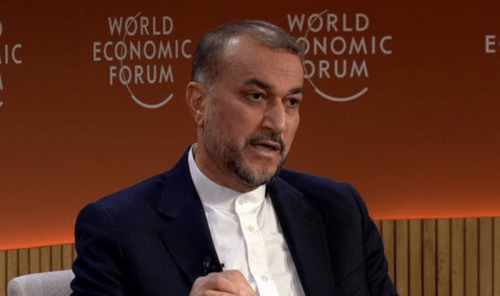IN a shocking turn of events, Pakistan-Iran ties have hit rock bottom in a matter of days, sparked by Tehran’s unprovoked strike in Panjgur.
On Tuesday, the caretaker prime minister and the Iranian foreign minister were exchanging pleasantries in Davos, while both navies were conducting joint drills in the Strait of Hormuz.
Later that day, Tehran would strike Pakistani territory in an unprecedented move, claiming to have hit anti-Iran terrorists. Pakistan insisted two children were killed in the ill-advised action. After downgrading diplomatic ties, Pakistan on Thursday struck Iranian territory.
According to ISPR, terrorists belonging to Baloch separatist outfits were neutralised in Operation Marg Bar Samachar near Saravan. Iran claims “foreign nationals” were killed in the Pakistani action.
The immediate need is to de-escalate matters, and prevent the conflict from spiralling further. While Iran’s action in Panjgur was highly condemnable, both states must handle the fallout with care.
It is easy to dial up tensions, but this would not be in the interest of either country. There must be a frank discussion between both capitals about the common problem of militancy. Pakistan says Baloch separatists find shelter in Iran, while Tehran claims Baloch extremist groups such as Jaish al-Adl operate from this side of the border.
Over the years, both states have lost security men as well as civilians in border clashes and acts of terrorism, and a robust mechanism needs to be discussed in order to prevent the soil of either country from being used against the other.
Relations between Pakistan and Iran have been cordial since independence, and even after Iran took an ideological turn after the 1979 Islamic Revolution, matters did not deteriorate, despite Pakistan’s closeness to the American and Saudi camp. While the current crisis is indeed a grave one, both sides can still row back and prevent further acrimony, if they choose to do so.
Admittedly, it will take time to rebuild trust, but neither state can afford hostility. For Pakistan, two borders — India and Afghanistan — remain tense; therefore, it is not in this country’s interest to see hostilities break out at its frontier with Iran. Pakistan should seek iron-clad guarantees from the Iranian leadership that its territorial sovereignty will not be violated again.
Thereafter, diplomatic and security officials need to engage regularly to thwart the stratagems of violent non-state actors. Common friends, primarily China and Turkiye, have offered their services to mediate. Tehran and Islamabad should consider these offers positively.
Moreover, bilateral contacts need to be established at the highest levels in both states in order to build confidence and prevent a worsening of the situation. Malign forces would like to see this crisis explode; leaders in both capitals must ensure this does not happen.
Published in Dawn, January 19th, 2024











































Dear visitor, the comments section is undergoing an overhaul and will return soon.